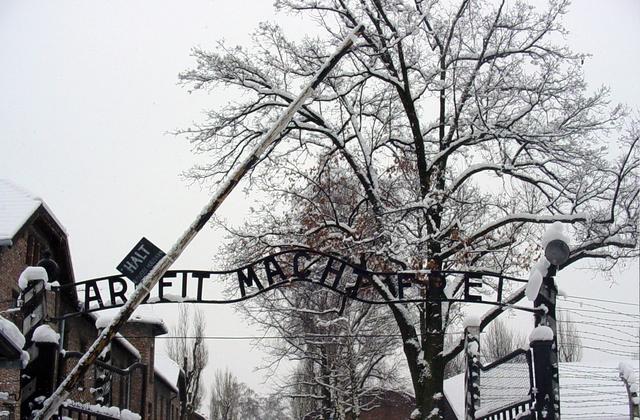Pope Francis visited Auschwitz-Birkenau in July. The pilgrimage was made mostly in silence, but his decision to visit speaks louder than words.
“I would like to go to that place of horror without speeches, without crowds – only the few people necessary,” he said before entering the Nazi death camp where more than a million people were murdered. “Alone, enter, pray,” he said, “And may the Lord give me the grace to cry.”
He kept to that. The only thing he said publicly was his entry in the guest book: “Lord, have pity on your people. Lord, forgive so much cruelty.”
Francis is the third Pope to have visited the Nazi death camps. Pope John Paul II, a survivor of the Nazi occupation of Poland, made it a priority to repair the relationship between Jews and Catholics. He visited in 1979. Pope Benedict XVI was a German who had been forced to join the Hitler Youth as a boy. He made the visit in 2006. Francis is the first to visit who had no direct personal connection to the Holocaust.
David Gibson, a biographer of Pope Benedict and a national reporter for the Religion News Service, said that “The visit by the first Latin-American Pope to Auschwitz is important because it is a recognition that this isn’t just a European tragedy, not just an ugly chapter in Western history.”
The trips by the previous pontiffs were cathartic. They also set a precedent, says Gibson. “Now, no Pope can go to Poland without stopping at Auschwitz and acknowledging the Holocaust.”
As he entered the camp, Francis passed under the gate inscribed with the words infamous words “arbeit macht frei.”
He met with a group of former Auschwitz inmates in front of Block 11, the famous Nazi torture chamber. He also met with a group of Polish Catholics who risked their lives saving Jews from the death camps.
One of the Polish Catholics handed Francis a lit candle which he carried to the “wall of death” where several hundred Jews were executed by firing squad.
Security was strong around Francis. Only a select few could approach the Pope. He prayed alone in the basement cell of Maximillian Kolbe for several minutes. Kolbe was a Polish priest who volunteered to replace a prisoner the Nazis had chosen to starve to death. John Paul canonized Kolbe in 1982.
Escorting the Pope was Father Stanislaw Ruszla, a priest in the village of Markowa. Polish president Andrzej Duda and prime minister Beata Szydlo also accompanied the Pope.
